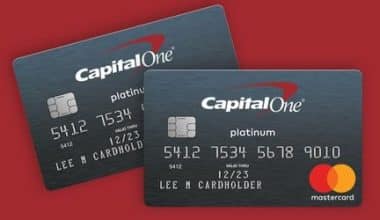What does it mean if you find a perfect used car for a much lower price than expected, but it has a branded title? A state agency has placed an official designation on the title. It indicates whether or not the used vehicle has been damaged or is potentially dangerous to drive. This post explains what a branded title means and why you should or shouldn’t buy a branded title car.
What Is a Branded Title?
A branded title is a car title that indicates that the vehicle has been severely damaged. The damage is frequently severe enough to permanently impair the vehicle’s dependability, safety, and value.
Vehicles are frequently branded after an insurance company declares them a total loss. A title brand may indicate that the vehicle is due for salvage, that it has been rebuilt from salvage, that it has been flood-damaged, that it has a fraudulent odometer reading, or that it is a lemon.
Title brands differ by state and can only be granted by a government agency. Brands are noted on a paper title, but they are also electronically recorded and linked to the vehicle identification number, or VIN, of the vehicle. That is how Carfax discovers title brands and displays them on a Carfax Report, even if the title has been altered through title washing or other types of title fraud.
Brands reveal important details about a vehicle’s history. They are given to vehicles that have high mileage, significant damage, chronic issues, and so on. While most states include a history brand somewhere on their titles, the wording varies by state.
Most states use the following title brands:
- Damaged
- Dismantled
- Gray market
- Junk
- Lemon law buyback
- Prior police
- Prior taxi
- Rebuilt
- Reconditioned
- Remanufactured
- Replica
- Revived junk
- Revived salvage
- Salvage
- Scrap vehicle
- Totaled
- Warranty returned
- Water damage
Common Title Brands
The following are some of the most popular title brands. It’s important to note that different states may have different definitions for a brand, so check with your local Department of Motor Vehicles for clarification on what each brand means in your state.
#1. Lemon Title
Most states have laws allowing consumers to return new cars that have been found to be excessively defective. These are known as lemon laws, and they are intended to protect consumers. Lemon laws establish clear rules for what types of defects qualify a car for return, but these laws differ from state to state. A car designated as a lemon in one state may not meet the requirements for the same designation in another, despite the fact that they all seek to identify cars with flaws that could endanger the driver.
If a consumer uses lemon law protections to return a car, a brand will be added to the vehicle’s title so that its history can be traced if it is sold as a used car in the future. This brand, known as a lemon title brand, will appear on the Carfax Vehicle History Report of a used car.
#2. Odometer Rollback Title Brand
The mileage of a car has a significant impact on its value. All else being equal, a barely driven used car will command a higher price than one with a lot of miles on the odometer. As a result, a dishonest seller may alter the reading of a used car’s odometer to make it appear to have traveled fewer miles than it actually has. This is referred to as odometer rollback, and it is illegal.
The odometer rollback can be difficult to detect. In many cases, a skilled mechanic is required to determine whether a car has been tampered with in this manner. If it is proven that a seller rolled back a vehicle’s odometer, the car’s title will bear an odometer rollback brand.
A Carfax Vehicle History Report can help you determine whether the title of a used car has ever received this brand.
#3. Salvage Title Brand
A salvage title may be issued if a vehicle sustains damage that will cost more to repair than the car’s fair market value. This type of title is issued when an insurance company declares a policyholder’s vehicle a total loss.
Because not all states define a salvage title the same way, a car’s record may be wiped clean as it moves from one state to another. A Carfax Vehicle History Report is a quick and easy way to find out if a vehicle has ever been issued a salvage title.
#4. Rebuilt Title Brand
A vehicle can be given a rebuilt title if it has been declared a total loss by an insurance company and/or issued a salvage title, then repaired back to roadworthy condition. Buying a vehicle with a rebuilt title can save you money, but there are risks involved.
#5. Water Damage Title Brand
Floods can be devastating to automobiles: Water can cause mildew and mold in a car’s interior and harm an engine’s performance.
Even if you don’t live in an area prone to the types of storms that cause flooding, you might come across a flood-damaged vehicle on the used car market. This is because many flood-damaged cars cross state lines in search of unsuspecting buyers.
If a vehicle’s title has been tainted by a flood or other type of water damage, it will receive a water damage brand. A Carfax Vehicle History Report will tell you if the title of a vehicle has ever been branded for water damage.
#6. Hail Damage Title Brand
Hail was responsible for nearly 60% of severe weather insurance claims in 2015. According to the National Oceanic and Atmospheric Administration, hail caused more than $10 billion in property damage in the United States in 2020.
Hail damage, predictably, can have a significant impact on a vehicle’s resale value. This can result in significant savings for used-car buyers if the damage is disclosed, but it can also be costly if an unethical seller tries to conceal information about hail damage.
Examine a used car carefully if you’re thinking about buying one. Hail damage can be more severe than first appears, so a thorough visual inspection is essential. You should ideally have the vehicle inspected by a reputable mechanic. Insurance companies may refuse to provide comprehensive coverage on a hail-damaged car, and some lenders will refuse to finance one.
Many states provide a title brand for hail damage, but some do not (including Texas). A Carfax Vehicle History Report will include information about hail damage reported by an insurance company or a state department of motor vehicles. In addition to looking for a hail damage title brand, look for total loss or salvage title brands, and see where the vehicle you’re interested in was previously registered.
Should I Buy a Branded Title car?
All things considered, it’s best to avoid buying a car with a branded title. The main advantage of purchasing a branded title vehicle is that it will usually cost less than a vehicle with a clean title.
The disadvantages are numerous, including safety and reliability issues, poor performance, low resale value, difficulty obtaining a loan to finance the car, and difficulty obtaining insurance for the car.
Title Washing
Different states have different rules about what qualifies a car to be branded in a specific way. Because of this variability, a car with a branded title in one state may lose that branding if it is sold in another state with different laws. Dishonest sellers can exploit this by selling a car in a state where the vehicle’s previous title brand isn’t recognized. The car will appear to have a clean title, but it does not. This is referred to as title washing.
How to Determine Whether a Vehicle Has a Branded Title
Always use a VIN checking tool, to protect yourself from hidden brands. Examples include
- VIN Check: This free service from the National Insurance Crime Bureau allows you to determine whether a vehicle has been branded “Salvage” or has been reported stolen.
- CARFAX: It displays all car history reports, whether it has a branded title, when and where it was issued, all maintenance records, and the number of owners. If you buy a car from a private seller, this information will cost you $39.99. When you buy a used car from Indy Auto Man, you can get a free CARFAX vehicle history report.
Even if the vehicle is moved to Indiana with an unknown brand, the vehicle history will still show all previously registered marks.
The Benefits and Drawbacks of Branded Titles
A car with a branded title may appear new and run well, and buying one may be appealing. But, before you hand over your hard-earned cash, consider the following pros and cons:
Pros
- Branded title cars are less expensive: A car with a branded title may be the answer if you’re on a tight budget and looking for dependable, low-cost wheels. Branded title vehicles may cost half the price of a comparable car with a clean title.
- A newer vehicle may be within your price range: You can stretch your budget by purchasing a branded title car. You can get a vehicle with more features than you otherwise could.
Cons
- Problems may arise when reselling your branded title car: Buyers may be wary of a car with a branded title, and the title may reduce the resale value.
- Financing may be difficult to obtain: Many lenders will only finance cars that have clear titles. If the vehicle you want has a branded title, you may have to shop around for a car loan and pay a higher interest rate.
- You may have difficulty finding an insurer: Because not all insurance companies will cover cars with branded titles, you may need to shop around for coverage.
- Mechanical problems could be lurking: You’re gambling with a car with a branded title. A car with major damage or other issues may be unreliable, and you may end up paying for costly repairs.
What is the Difference Between a Branded Title and a Salvage Title?
A branded title indicates that a vehicle has been damaged and repaired so that it is safe to drive. A salvage title, on the other hand, indicates that the car has been irreparably damaged and is no longer legally drivable; it is only valuable for parts and scrap.
Is It Possible to Insure Branded Titles?
Yes, you can insure a car with a branded title, but it may cost you more than a car with a clean title.
Is It Worthwhile to Purchase a Car With a Branded Title?
Buying a car with a branded title can be risky. If you’re willing to take the risk, and everything goes well, it could turn out to be a rare find. Otherwise, unforeseen mechanical or performance issues, higher insurance and financing costs, and additional headaches trying to resell the car could end up costing you more than simply buying a car with a clean title in the first place.
Conclusion
When shopping for a used car, whether at a dealership or from a private seller, you want to buy the best example you can find. A title brand is a black mark on any car that indicates that the car has been through a major, condition-altering event. Regardless of the cost savings, it is always preferable to buy a car with a clean title.
Always get a vehicle history report and ask to see the vehicle’s title to ensure that the car you want has a clean title. If the seller agrees, you’ll know not only that the car has a clean title, but that it has a title at all. If the seller has lost the title or does not have it, the car process can be difficult for both buyers and sellers.
There’s no reason to settle for a branded vehicle with 40 million used cars bought and sold each year. Keep looking if you come across any branded title vehicles; the right car with a clean title is out there.
Related Articles
- HOW TO SIGN OVER A CAR TITLE: Detailed Guide
- Hail Damage Car: Insurance claims, costs of repair (+top picks for the sales)
- TITLE INSURANCE COST: How Much Does It Cost And Do You Need It?
- CAR TITLE LOANS: 11 Alternatives to Raising Cash
- SALVAGE TITLE CARS: Meaning, Pros, and Cons






